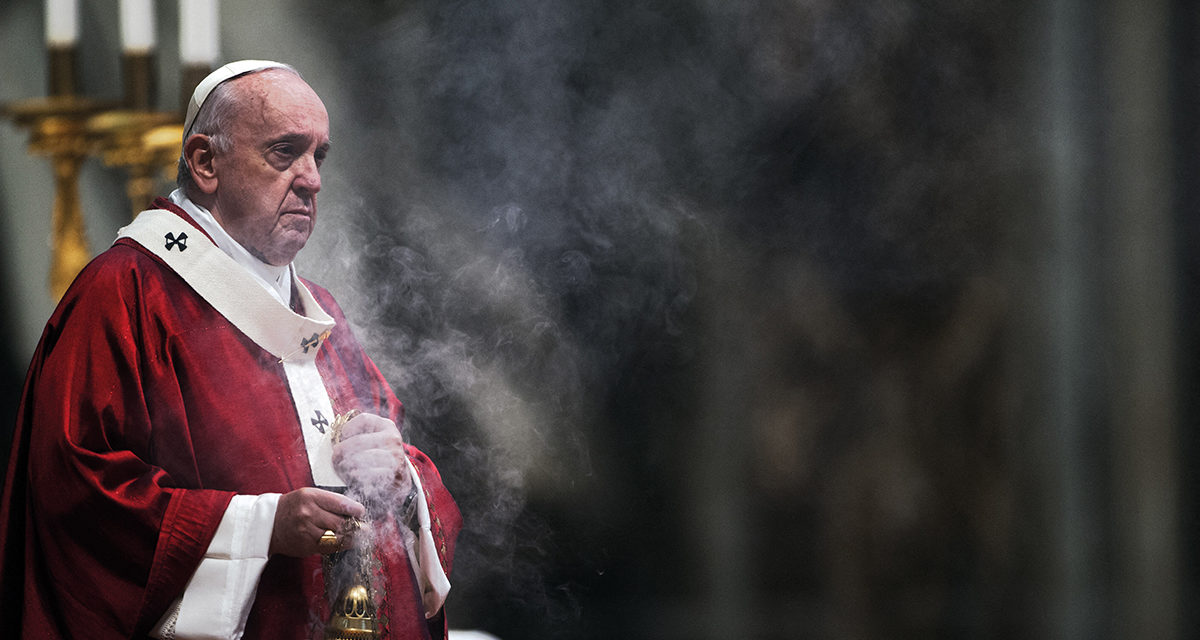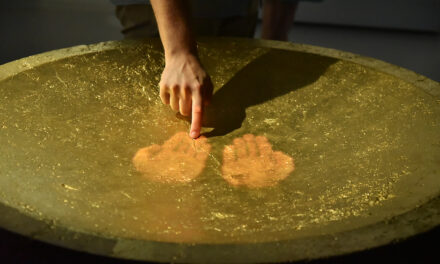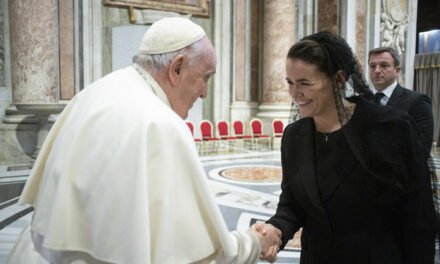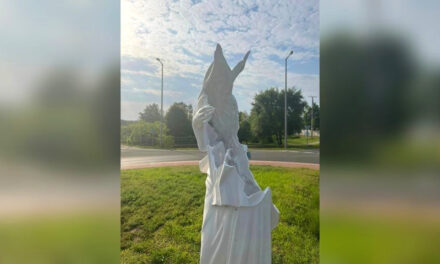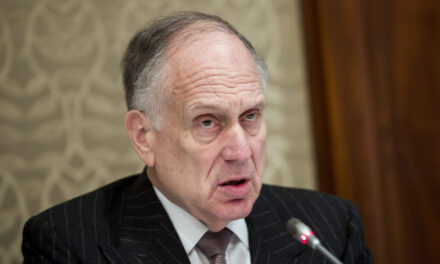The diplomatic schedule of the head of the church arriving at the September Eucharistic Congress, as well as the unverified news about it, swept through the domestic media.
Pope Francis does not want to meet with Viktor Orbán and János Áder during the International Eucharistic Congress to be held in Budapest in September, wrote the well-informed Vaticanologist Edward Pentin of the American National Catholic Register at the beginning of June. The news was first picked up by HVG at home, and then it was picked up by the entire media. According to this, the Holy Father will only come to Hősök Square on September 12 to celebrate the closing mass of the World Congress, and then after the three-hour visit to Budapest, he will visit Slovakia for three and a half days, and he does not want to meet with the main Hungarian dignitaries due to the government's migrant policy.
The left-wing opinion leaders immediately picked up on the news and saw it as proof that Viktor Orbán does not pursue Christian politics. On the right, on the other hand, the head of the church was criticized rather than the American Rod Dreher. He put it this way on The American Conservative: "It's easy to imagine why Pope Francis doesn't like Orbán. Francis thinks Europe should open its doors to immigrants from the Third World; According to Orbán, this would mean the death of Europe. Catholic journalist John L. Allen Jr. writes that the fate of migrants is the cornerstone of Pope Francis' pontificate. Ferenc also refused to meet with the leading Italian politician Matteo Salvini, protesting his anti-immigration policy. It is clear that Ferenc does not want to meet Orbán because of this. If I were Orbán - who is a Calvinist, although his wife and children are Catholics - I would take all this as an honor. His policy did more to protect European Christianity than the Pope's.
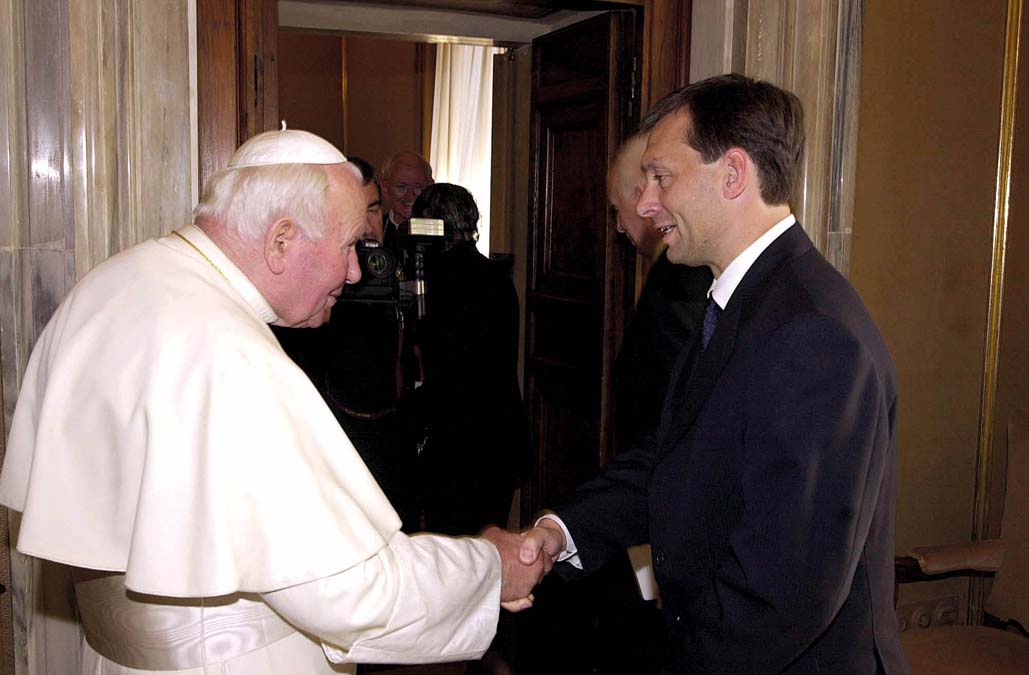
II.
Pope János Pál received Hungarian Prime Minister Viktor Orbán for a private hearing on September 22, 2000. Photo: MTI / Zoltán T. Asztalos
After that, on Wednesday, June 9, the announcement of the Hungarian Catholic Bishops' Conference was published, according to which the head of the church will meet the leading Hungarian politicians. The statement of the MKPK: "Pope Francis is expected to arrive in Hungary on September 12, 2021 for the closing mass of the 52nd International Eucharistic Congress. Before the Holy Mass, according to the plans, he will meet separately with the leaders of the Hungarian state, President János Áder, Prime Minister Viktor Orbán, members of the government and other high-ranking state leaders. We find it regrettable that false information and misinterpretations about the Holy Father's program in Hungary - which is currently still being organized - have spread in local and international media. For example, the rumor that the Holy Father excluded meeting anyone from his program does not correspond to reality."
Catholic bishops do not necessarily visit the International Eucharistic Congresses"
We know that Pope Francis was also "worked on" by Vatican diplomacy, so the fact that he finally meets Viktor Orbán and János Áder is not only the result of the efforts of the Hungarian side, but also of his own people. However, according to our sources, it is not that the head of the church specifically did not want to meet the leading Hungarian politicians, with whom he has already met several times. Rather, the reality may be that the possibility of a meeting did not even occur to him in the first place, and his own diplomats warned him that it would be an insult not to meet with Orbán and Áder, and that he should not stir up tension between Hungary and Slovakia.
Migration, "everyone is a brother", green policy
The papal visit is a separate diplomatic genre, which has its own framework, rules, rituals, and its own art. Since the pope is both the head of the church and the head of state, he only sets out if he is invited in both capacities, the local church and the given state. It doesn't matter what he's invited to: in this case, Pope Francis was originally invited only for these three hours, so it's no wonder that he doesn't want to spend arbitrarily more time in the country.
It is also true that the heads of the Catholic Church do not necessarily visit the International Eucharistic Congress, so it does not go without saying that Francis is visiting the Hungarian capital for this reason. When the event was held in Budapest in 1938 on the occasion of the 900th anniversary of the death of King Szent István, XI. Pope Piusz's papal legate Eugenio Pacelli, the secretary of state responsible for foreign policy of the Holy See, the later XII. He was represented by Piusz.
The Pope greatly appreciates the many results of government policy, whether it is about embracing the cause of persecuted Christians or family policy.
It is a fact that there is indeed a conflict between the head of the church and the Hungarian government when it comes to migration policy. According to our information, after a long hesitation, Pope Francis suddenly decides from his gut, and he is not good with the protocol. On the other hand, Archbishop Paul Gallagher, the Vatican's "minister of foreign affairs", has a very intellectual and delicate approach to international relations, diplomacy and papal visits. Gallagher has a good personal relationship with Péter Szijjártó, and as far as we know, they had a meaningful and good-natured conversation. On the other hand, his heart is the increased integration of the European Union, which is why the Hungarian government is a bit problematic for him. However, it is also not true that there is only a conflict between the government and the Vatican. The Pope and his apparatus greatly appreciate the many achievements and efforts of government policy, whether it is about embracing the cause of persecuted Christians or family policy. Pope Francis is very conservative in many matters and sees things in a more nuanced way than we could infer from his domestic opinion. It is true, however, that he does not talk about them as much, since his basic agenda consists of other topics: migration, "everyone is a brother", green policy. It is worth knowing about the Vatican that the oldest and most professional diplomacy in the world operates there. Those familiar with the world of diplomacy usually talk about the fact that the Vatican does not think in terms of years or decades, but rather in terms of centuries, with two millennia of knowledge behind it. This knowledge is effectively passed on at the diplomatic academy. In addition, this is one of the most well-informed diplomatic divisions in the world: whoever they want to know about in the Vatican, they will know everything about. They cannot be cut through. In addition, they are mostly priests who usually make confessions and give spiritual talks to their followers, and in Hungarian they are good people. Vatican diplomacy is therefore impressive, it is not worth thinking that it could be outwitted.
Source and featured photo: mandiner.hu

